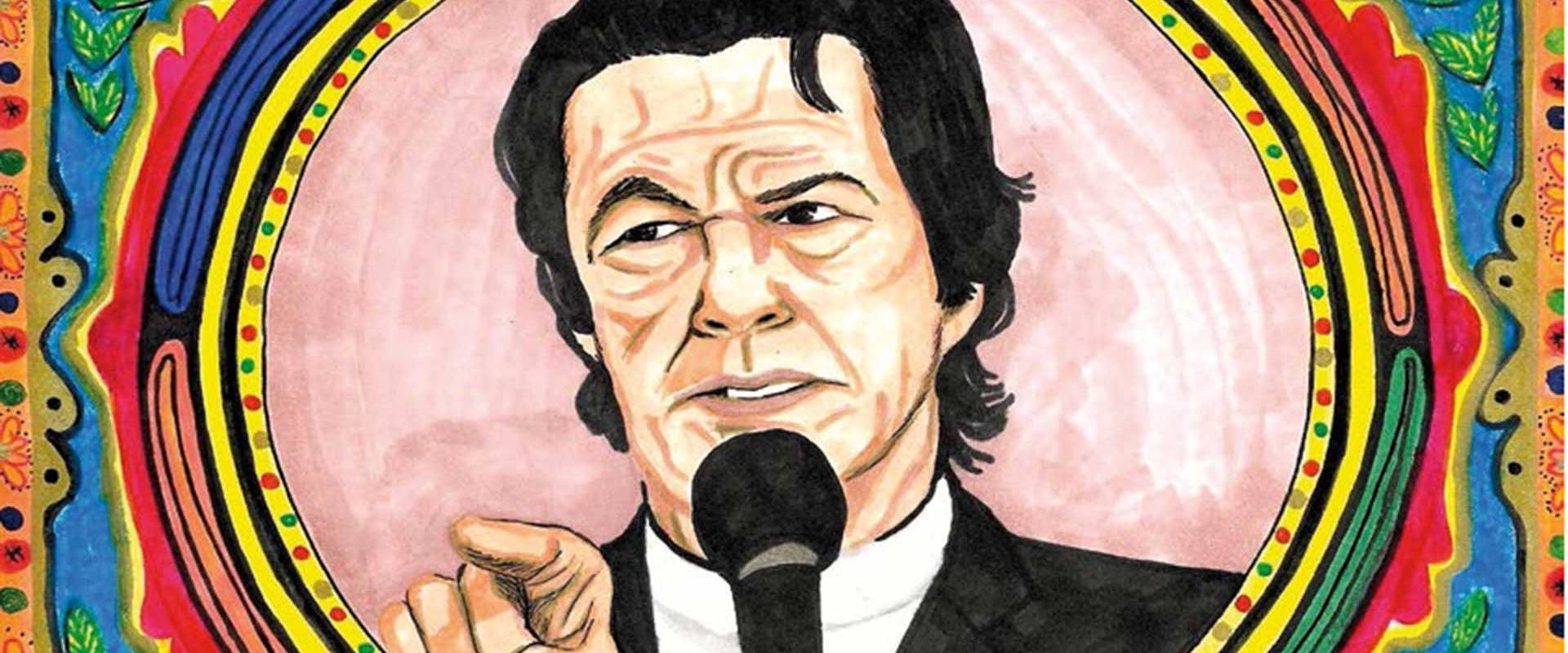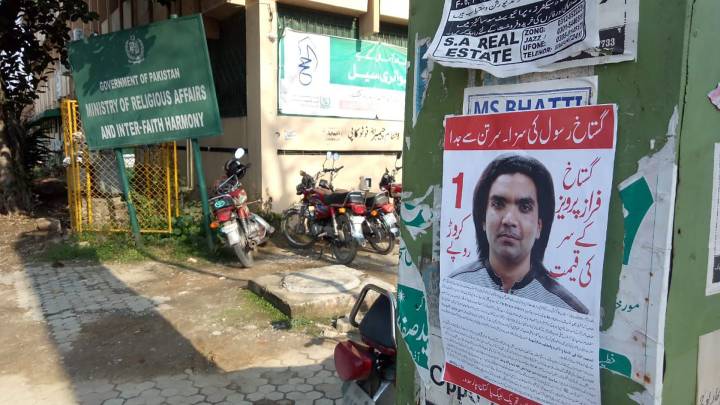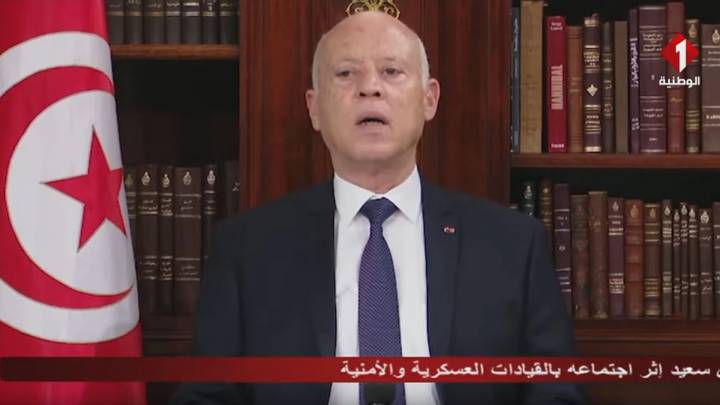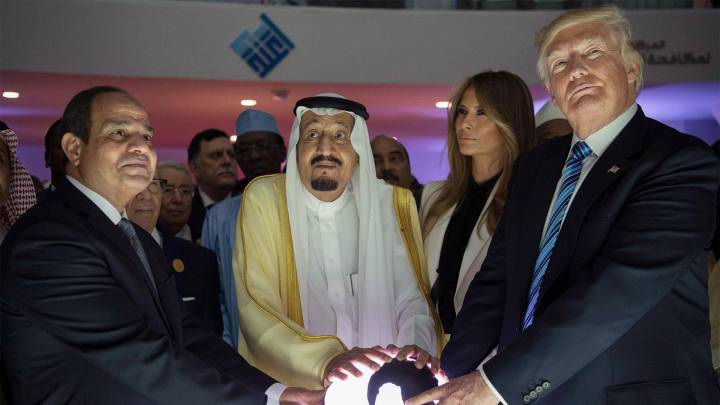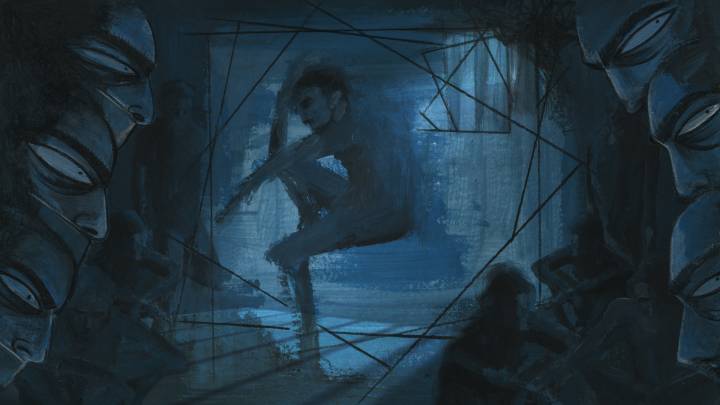Imran Khan’s election day victory fed off the hopes and dreams of my generation. Still, he relies on the power pillars of the past. That’s bad news for democracy in Pakistan.
I first saw Imran Khan at a rally in 2012. It was right before the last elections. He was gaining momentum using the slogan of ‘New Pakistan’or ‘New Pakistan‘, that puts the responsibility of achieving this ‘newness’ on the shoulders of young people.
Witnessing so many people gathered at Minto Park in Central Lahore made me hopeful. All those people gathered there from all walks of life were in a state of reverie. Dreaming to see better days. Honestly speaking, we all are sick and tired of the circus going around us. We have had enough. What do we want? Nothing much, just to live life with dignity. To live in a country, where justice and peace are restored. I can’t deny the fact I felt in that moment that maybe we can get out of the mess we are in. And maybe it was Imran, this flamboyant cricketer turned pious politician, who we needed for that.
I didn’t want my vote to get wasted. I didn’t want to vote for the political parties that held power previously as I have had enough of their lies and deception. But I didn’t want to be misled or fooled again. We have been listening to the rhetoric of the political ‘leaders’ who just wasted our time and pushed us in the sinister labyrinth of despair and despondency. So I needed to know more about Imran Khan.
Before voting, I started to research about his movement, Pakistan Tehreek-e-Insaf (PTI) and I read Imran Khan’s autobiography. I wrote an open letter to Mr. Khan, as a 23-year-old Pakistani getting to vote for the first time in my life. It was exciting as I could participate in the political process.
The political manipulation by the country’s military authorities by selectively targeting Khan’s opponents and also led to the silencing of the press when it had been critical of military’s role.
I asked him some question which as a voter I had every right to ask. I wanted to know how he planned to bring ‘Insaaf’ – ‘Justice’ to our lives. Something Pakistan Tehrik-e-Insaaf (‘Movement of Justice’) stands for. I briefly asked him about his concrete plans to fight corruption. I questioned his stance on starting a dialogue with the Taliban. And I asked him bluntly whether he was backed by the intelligence agencies. At first, he didn’t reply.
But after I gave him the reference of Waleed Rashed, an important Egyptian activist, whom I had met in Malta, and who was a friend of Mr. Khan, I suddenly got a reply. So, why not as a Pakistani voter, I still question? In a democracy, a politician is accountable to any voter. Anyway, even if Waleed’s reference got me Mr. Khan’s reply, I was not satisfied with its content. He couldn’t answer any of my questions.
Looking at the election campaign this year, which brought Imran Khan the majority, things didn’t really look better. The political manipulation by the country’s military authorities by selectively targeting Khan’s opponents and also silencing of the press when it had been critical of military’s role, is something to be questioned.
Mr. Khan’s myopic view of how feminism works is surely unacceptable to me.
“I think a democratic government rules from moral authority,” Imran Khan said in an interview with The New York Times. “And if you don't have moral authority, then those who have the physical authority assert themselves. In my opinion, it is the Pakistan Army and not an enemy army. I will carry the army with me.”
Here my hope for a free democratic system in Pakistan is dashed. The institution of the military is there to protect the borders and not to meddle in politics. To strengthen democracy, we need to respect the political process and the will of the people based on transparent elections. But it’s not only his meddling with the military that worries me.
As a woman, I disapprove of Mr. Khan’s denouncing Western feminism as a hindrance to motherhood in a recent interview with Hum News. “I disagree with the Western concept of feminism; it has completely degraded the role of a mother,” Khan told Pakistani media, as reported by India Today. Mr. Khan’s myopic view of how feminism works is surely unacceptable to me.
I dread the day when religion again will be politicized to have an Islamic state where minorities are persecuted.
It is also known that as PTI’s Chairman Imran Khan has rejected the Protection of Women Right’s Bill which has allowed the criminalization of domestic violence. The 31 clauses of the new bill are a milestone in women’s rights. The Punjab Assembly has passed the bill recently. I still can’t understand that the strongest opposition towards the bill came from PTI. “The Protection of Women’s Rights Bill,” Imran Khan said in the Dawn newspaper recently, had been passed to introduce a “made-in-Washington Islamic system in the country.”
Having religious hardliners with anti-Western views in the party who want to impose Sharia Law and support the Zina and Hudood Ordinances of 1979, it will be a tough situation for women in Pakistan. The vaguely written laws of Zina and Hudood Ordinances of 1979 criminalize ‘fornication and adultery’. The laws have been used to imprison women at the mere accusation of unlawful behavior subjecting them to lashing and even stoning to death.
Coming from the Christian minority, I dread the day when religion again will be politicized to have an Islamic state where minorities are persecuted. The blasphemy laws which have been misused against the minorities have been defended by Mr. Khan. Few politicians dare to speak out against the law like Salman Taseer. The former governor of Punjab was assassinated in 2011. The increased frenzy around the blasphemy laws has led to at least 69 vigilante murders since 1990, the targeting of minorities and fake allegations. Critics have condemned Mr. Khan for using the blasphemy issue to win support from religious right-wingers, which is not an atypical gambit in Pakistani politics.
In short, it is a tragedy for our country that the hopeful people of Pakistan had to choose between sloppy candidates. This kind of ‘Naya Pakistan’, excluding women and minorities, is not acceptable to me at any cost as it will surely destroy the legal and political progress of Pakistan.
Anam Gill is a social activist and journalist from Lahore, Pakistan. She is the founder of Dialogue Café, a creative space bringing people together to interact and engage in debates. Her writings have appeared in several renowned Pakistani and international news outlets, including the Dawn, Express Tribune and Deutsche Welle.
